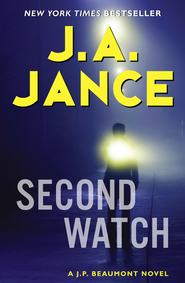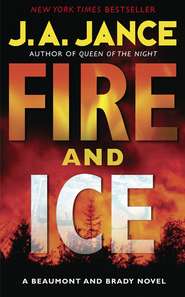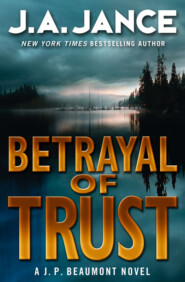По всем вопросам обращайтесь на: info@litportal.ru
(©) 2003-2024.
✖
Queen of the Night
Автор
Год написания книги
2018
Настройки чтения
Размер шрифта
Высота строк
Поля
Brian was on call. Only if someone decided to kill someone tonight would he have to go in to work. Otherwise he would have had his special day with his girls— well, all but one of his girls. That was what made life worth living.
Tucson, Arizona
Saturday, June 6, 2009, 11:00 A.M.
90º Fahrenheit
Brandon Walker knew he was running away. He had the excuse of running to something, but he understood that he was really escaping from something else, something he didn’t want to face. He would face it eventually because he had to, but not yet. He wasn’t ready.
Not that going to see G. T. Farrell was light duty by any means. Stopping by to see someone who was on his way to hospice care wasn’t Brandon’s idea of fun. Sue, Geet’s wife, had called with the bad news. Her husband’s lung cancer had been held at bay for far longer than anyone had thought possible, but now it was back. And winning.
“He’s got a set of files that he had me bring out of storage,” Sue had said in her phone call. “He made me promise that I’d see to it that you got them—you and nobody else.”
Brandon didn’t have to ask which file because he already knew. Every homicide cop has a case like that, the one that haunts him and won’t let him go, the one where the bad guy got away with murder. For Geet Farrell that case had always been the 1959 murder of Ursula Brinker, a twenty-one-year-old coed who had died while on a spring-break trip to San Diego.
Geet had been a newbie ASU campus cop at the time of her death. Even though the crime had occurred in California, it had rocked the entire university community. Geet had been involved in interviewing Ursula’s friends and relations, including her grieving parents. The case had stayed with him, haunting him the whole time he’d worked as a homicide detective for the Pinal County Sheriff’s Department, and through his years of retirement as well. Now that Geet knew it was curtains for him, he wanted to hand Ursula’s unsolved case off to someone else and let his problem be Brandon’s problem.
Fair enough, Brandon thought. If I’m dealing with Geet Farrell’s difficulties, I won’t have to face up to my own.
Geet was a good five years older than Brandon. They had met for the first time as fellow cops decades earlier. In 1975, Brandon Walker had been working Homicide for the Pima County Sheriff’s Department, and G. T. Farrell had been his Homicide counterpart in neighboring Pinal. Between them they had helped bring down a serial killer named Andrew Philip Carlisle. Partially due to their efforts, Carlisle had been sentenced to life in prison. He had lived out his remaining years in the state prison in Florence, Arizona, where he had finally died.
Brandon Walker had also received a lifelong sentence as a result of that case, only his had been much different. One of Carlisle’s intended victims, the fiercely independent Diana Ladd, had gone against type and consented to become Brandon Walker’s wife. They had been married now for thirty-plus years.
It was hard for Brandon to imagine what his life would have been like if Andrew Carlisle had succeeded in murdering Diana. How would he have survived for all those years if he hadn’t been married to that amazing woman? How would he have existed without Diana and all the complications she had brought into his life, including her son, Davy, and their adopted Tohono O’odham daughter, Lani?
Much later, long after both detectives had been turned out to pasture by their respective law enforcement agencies, Geet by retiring and Brandon by losing a bid for re-election, Geet had been instrumental in the creation of an independent cold case investigative entity called TLC, The Last Chance, an organization founded and funded by Hedda Brinker, Ursula Brinker’s still grieving mother. In an act of seeming charity, Geet had seen to it that his old buddy, former Pima County sheriff Brandon Walker, be invited to sign on with TLC.
That ego-salving invitation, delivered in person by a smooth-talking attorney named Ralph Ames, had come at a time when, as Brandon liked to put it, he had been lower than a snake’s vest pocket. He had accepted Ames’s offer without a moment of hesitation. In the intervening years, Brandon had worked hand in hand with other retired law enforcement and forensic folks who volunteered their skills and expertise to make TLC live up to its case-closing promises. For Brandon, the ability to do that—to continue making a contribution even in retirement—had saved his sanity, if not his life.
All of which meant Brandon owed everything to Geet Farrell. That was why he was making this pilgrimage to Casa Grande late in the morning on what promised to be a scorcher of a Saturday in early June. Of course heat was relative. By July and early August, the hot days of June would seem downright cool in comparison.
Weather aside, Brandon understood that this was going to be a deathbed visit, but he didn’t mind. He hoped that by doing whatever he could to help out, he might be able to even the score with Geet Farrell just a little. After all, this was a debt of gratitude, one Brandon Walker was honor-bound to repay.
Tucson, Arizona
Saturday, June 6, 2009, 1:10 P.M.
94º Fahrenheit
Diana Ladd Walker sat in her backyard gazebo next to a bubbling fountain typing into her laptop. It was shady there, but it was still hot and dry. Soon she’d either have to go into the pool for a dip, or else she’d have to retreat to the air-conditioned comfort of the house.
“So how are things working out for you?” Andrew Carlisle asked.
Rendered speechless, Diana stared at the vision that had suddenly materialized over the top of her computer.
Shirtless and hatless, Carlisle sat in full early-afternoon sunlight with his scarred face and sightless eyes staring up into a blazing blue sky. If he hadn’t been blind already, staring at the sun would have made him so.
Examining every aspect of her unwelcome visitor, Diana might have been viewing a close-up shot of someone on Brandon’s new high-defflat-screen TV set. Every detail was astonishingly vivid—from the sparse strands of white hair that sprinkled his sunken chest to the grizzled unshaved beard that dotted his gaunt cheeks and the scarred and rippled skin of his forehead and nose.
I did that, Diana thought, gasping involuntarily at the sight of those horrifying scars. I’m responsible for doing that to a living, breathing human being, back when he was alive.
Which Andrew Carlisle was not. The man sitting across the table from Diana was most definitely not alive. She knew that for certain. He had been alive when he had come to her house years earlier, intent on rape and murder. Before it was over, he had left Diana with his own special trademark—a fierce bite mark that even now still scarred her breast. But Carlisle had underestimated her back then. He hadn’t expected Diana to fight back or to leave him permanently disfigured in the process. All of that had happened long ago—before he had gone to prison for the second time and before he died there. Back in those days there had been no swimming pool or fountain or gazebo in Diana’s walled backyard, and she most certainly hadn’t been working on a laptop.
“We are not having this conversation,” she said to him now.
“Come on, Diana,” he urged. “For old times’ sake. Let bygones be bygones. Tell me, how’s the writing going? What are you working on now?”
She was dealing with some backed-up business correspondence, but she wasn’t going to tell him that.
“What I’m working on is none of your business,” she responded.
“Of course it’s my business,” Carlisle insisted. “I’m always interested when one of my students goes on to achieve remarkable success in the publishing world.”
“I was not your student,” Diana told him flatly. “My first husband was your student, remember? I never was. Go away and leave me alone.”
“Give me a break, Diana. I’m still annoyed that Shadow of Death won a Pulitzer. You never would have won that award without me. I was the guy who came up with the idea, and the whole book was all about me. You should have given me more credit.”
“You didn’t deserve more credit,” she said. “You didn’t write it. I did.”
“Oh, well. No matter,” he said with a sigh. “After all, fame is fleeting. I thought you’d be glad to see me. Mitch may drop by a little later, too. And Gary. You’d like to see him again, too, wouldn’t you? Although, come to think of it, maybe not. That self-inflicted bullet left a hell of a hole in his head. Not so much in the front as in the back. Exit-wound damage and all that. I’m sure you know how those work.”
Living or dead, Diana had no desire to see her dead first husband, Garrison Walther Ladd III, nor did she want to see Mitch Johnson, the surrogate killer Carlisle had sent to attack her family in his stead when Carlisle himself could no longer pose a direct threat.
“Shut up,” she said.
Tires crunched on the gravel driveway. Damsel, Diana’s aging nine-year-old mutt, pricked her ears and raised her head at the sound. She had come to Diana and Brandon as a rollicking pound puppy some eight years earlier when her antics had earned her the title of Damn Dog. Now she was a well-behaved grizzled old dog with a nearly white muzzle and a game hip. She stood up and steadied herself for a moment. Then, with an arthritic limp, she hurried over to the side gate, barking in welcome.
“My daughter’s coming,” Diana said. “Go away.”
“Lani is coming here?” Carlisle sounded delighted. “The lovely Lani? Do tell. Wonderful. Maybe she’ll show me her scar.”
“What scar?”
“Oh, I forgot. You don’t know about that.”
“What scar?” Diana insisted.
“Ask her about it if you don’t believe me. I understand Mitch left her a little something to remember him by. Let’s just say it’s a token of my esteem.”
Lani had been sixteen when Mitch Johnson, Andrew Carlisle’s minion, had kidnapped Diana’s daughter.
“What?” Diana asked. “What did he do to her?”
“Why don’t you ask her yourself?” Determinedly, Diana turned her attention back to her laptop. She thought Carlisle would disappear when she did that, but he didn’t. He stayed right there with his face turned in her direction. Since he was blind now, he could no longer stare at her, but the same expression was on his face—the same disparaging smirk he had aimed at her once before, long ago in a courthouse hallway.
“You’re not welcome here,” she told him. “Go away.”
Highway 86, West of Tucson, Arizona









